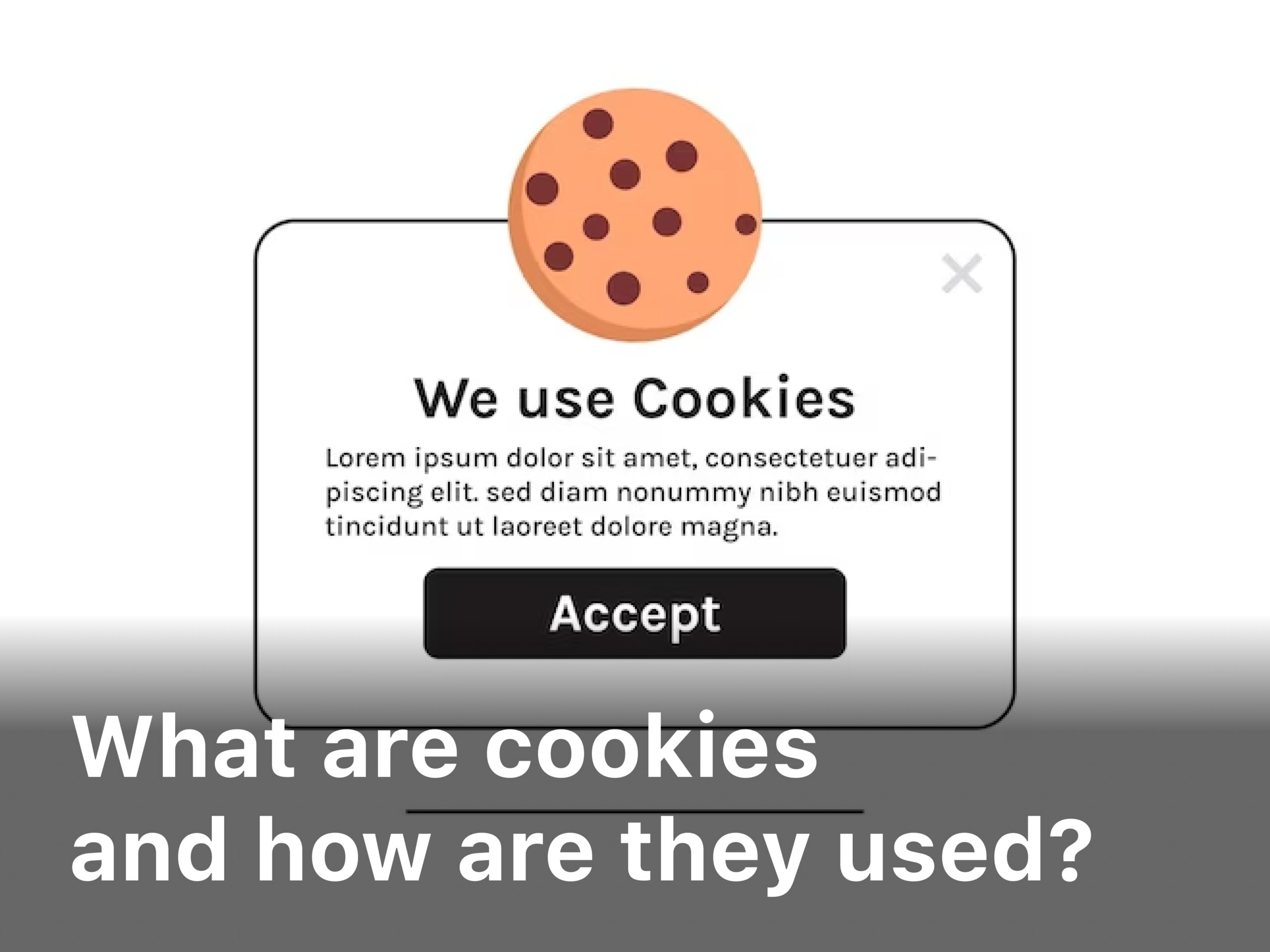
Have you ever wondered how websites seem to remember you and your preferences? How they automatically fill in your information or show you ads for things you’ve recently shopped for online? The answer is simple: cookies. Cookies are small bits of data stored in your web browser that websites use to identify you and keep track of your activity.
You’ve probably seen the little pop-ups asking if you’re okay with a website using cookies. Most of us just click “accept” without really knowing what we’re agreeing to. But cookies themselves aren’t bad. In fact, they’re essential for many websites to function properly and provide a good user experience.
In this article, we’ll demystify cookies, explain exactly what they do and how they work, look at the different types of cookies, and discuss ways you can manage cookie settings to balance privacy and convenience. So next time you see one of those cookie pop-ups, you’ll know exactly what you’re accepting and why it matters.
What Exactly Are Cookies?
So what exactly are cookies and why are they such a big deal? Cookies are small text files stored on your computer that websites create to store information about you and your preferences.
When you visit a website, the site may store a cookie on your browser to save your log in info, shopping cart items, or page views so you don’t have to enter that info every time you visit. Cookies also allow sites to customize content for you based on your interests or past activity on the site. Some use cookies to display targeted ads or product recommendations tailored to your tastes.
There are a few types of cookies:
- Essential cookies: These cookies are critical for websites to function properly. They enable things like saving items in your cart or remembering you’re logged in.
- Performance cookies: These cookies collect info about how visitors use a website to help optimize the site. They track visitor activity, page views, popular content, and more to improve user experience.
- Functional cookies: These cookies remember choices you make to improve your visit. Things like your username, language preference, font size, etc. They make the site more useful by eliminating the need to set these preferences every time you visit.
- Targeting or advertising cookies: These cookies collect info about your interests and browsing habits to display ads targeted to your interests. They allow websites and advertisers to serve you ads they think you may be interested in based on your activity across the web.
While some see cookies as a privacy concern, they do have useful purposes when managed responsibly. You can usually adjust your browser settings to accept or decline different types of cookies based on your preferences. But blocking all cookies may prevent some websites from functioning properly. Managing cookies is about finding the right balance of privacy and utility for you.
How Cookies Work

Cookies are little bits of data stored on your computer that websites use to keep track of you. Every time you visit a site, it can place one or more cookies on your browser. How do they work?
When you first visit a website, it will save a cookie to your browser. The next time you visit, your browser will send that cookie back to the site. This allows the website to “recognize” you and store information about your preferences or past activity.
Many sites use cookies to store login info so you don’t have to sign in every time. They also use cookies to store shopping cart data, site preferences, and more. Some cookies even help sites keep track of your interests so they can show you more relevant ads or content.
There are a few types of cookies:
- Session cookies: These cookies last only while your browser is open. They disappear when you close your browser. Sites use them to store temporary data like items in a shopping cart.
- Persistent cookies: These have an expiration date and stay on your device after you close your browser. Sites use them to store info like login credentials or interests.
- Third-party cookies: These are placed on sites by advertisers, social networks, and other companies. They are used to collect data about your online activity so companies can show you targeted ads.
You can control which cookies are allowed on your device. Most browsers let you block third-party cookies and delete any existing cookies. You can also set sites to prompt you before saving cookies. While cookies do help provide a better web experience, it’s a good idea to monitor what types of information websites are storing about you.
Types of Cookies: Session vs Persistent Cookies
Cookies are small pieces of data that websites store on your browser. There are two main types: session cookies and persistent cookies.
Session Cookies
Session cookies are temporary and are deleted when you close your browser. They store information to help a website function properly during your current visit. For example, session cookies will keep you logged in to a website or remember items in your shopping cart. Without them, websites would treat you as a new visitor each time you load a new page.
Persistent Cookies
Persistent cookies, also known as tracking cookies, have a longer lifespan and are used to store your preferences or profile information for the website. They allow sites to remember you when you return and tailor content to your needs. Persistent cookies can stay on your hard drive for months or even years after you visit a website.
While persistent cookies offer convenience by saving your login info and preferences, they are also used for targeted advertising and tracking your web activity. Many people disable persistent cookies due to privacy concerns. If you want to restrict them, you can configure your browser settings to delete them automatically after you leave a website or block them altogether.
Disabling cookies can negatively impact your web browsing experience by:
- Logging you out of websites
- Forgetting items in your shopping cart
- Showing the same ads repeatedly
- Restoring default website settings with each visit
The choice is up to you. Find the right balance between privacy and convenience for your needs. Understanding the types of cookies and how they’re used will help you make an informed decision about your browser configuration.
Related Article : What is I2P and how does it work?
How Websites Use Cookies to Track You
Tracking Your Clicks
When you visit a website, it drops little data packets called cookies onto your browser to track your activity. Cookies log your clicks, searches, page views, and more to build a profile of your interests and behavior. The site then uses this profile to target content, ads, and offers tailored to you.
Targeted Ads
Have you ever noticed how ads seem to follow you around the internet, promoting products similar to ones you recently searched? That’s cookies at work. Advertisers embed cookies on sites you visit and use the data to determine which ads are most likely to catch your interest based on your browsing history. So if you search for running shoes, you may start seeing ads for athletic gear on every site you visit.
Personalized Experiences
Cookies also allow sites to customize your experience. For example, when you sign in to a service like Netflix or Amazon, cookies recognize you and tailor content recommendations, shopping suggestions, and interface based on your past activity and interests. They make sites feel more intuitive and helpful.
Sharing Data
Some companies share cookie data with third-party advertisers and analytics providers. They can then match your cookie profiles across sites to build an even broader understanding of your interests for ad targeting and content personalization. However, many sites now allow you to opt out of data sharing and tailoring in their privacy policies or cookie consent notices.
While cookies provide a more personalized web experience, they also raise privacy concerns. If you’re uncomfortable with tracking and data sharing, you can disable cookies in your browser settings. But keep in mind, doing so may log you out of sites and reduce functionality on some web services. It’s an ongoing debate with valid arguments on both sides. In the end, you have to weigh the benefits of a tailored web against your desire for privacy.
Managing and Deleting Cookies
Cookies are small bits of data that websites store on your computer to remember you and your preferences. They’re mostly harmless, but some people prefer to manage them. Here are some ways you can wrangle those digital crumbs.
Delete cookies from a specific website
If there’s a particular site whose cookies you want to delete, you can target just that domain. In your browser’s cookie settings, find the website in question and select “Remove” or “Delete” next to its name. This will erase any cookies placed on your computer by that site, including any login info or shopping cart data. You may need to sign in again next time you visit.
Delete all cookies
For a complete cookie reset, you can delete all cookies and cached data from your browser. In Chrome, go to Settings > Privacy and security > Clear browsing data. Select “Cookies and other site data” and “Cached images and files,” then choose a time range like “All time.” Click “Clear data.” In Firefox, go to Preferences > Privacy & Security > Cookies and Site Data. Click “Clear Data” and select “Cookies” and “Cache.” Then click “Clear.” This will sign you out of websites and remove any preferences those sites have stored.
Block or limit cookies
If you want more control over cookies, you can adjust your browser’s cookie settings. In Chrome, go to Settings > Site settings > Cookies and site data. You can block third-party cookies, block cookies entirely, or choose which ones to delete and keep. In Firefox, go to Preferences > Privacy & Security > Cookies and Site Data. Under “Cookie Policy,” you can block cookies from third parties, block all cookies, or select custom settings for different sites.
Cookies help make the internet work seamlessly, but it’s good to understand how they’re used and how you can manage them. Keeping your cookie clutter under control will help keep your browsing data more secure and your online experience customized to your needs. Let me know if you have any other questions!
In conclusion, cookies are small pieces of data stored on a user’s computer by websites to enhance their browsing experience and gather information. They serve various purposes, such as remembering user preferences, enabling personalized content, and tracking user activities. While cookies play a crucial role in improving website functionality and providing a customized experience, concerns about privacy and data security arise. It is important for users to understand cookie usage, exercise control through browser settings, and be mindful of the information they share online. By striking a balance between convenience and privacy, users can navigate the digital landscape with confidence.





